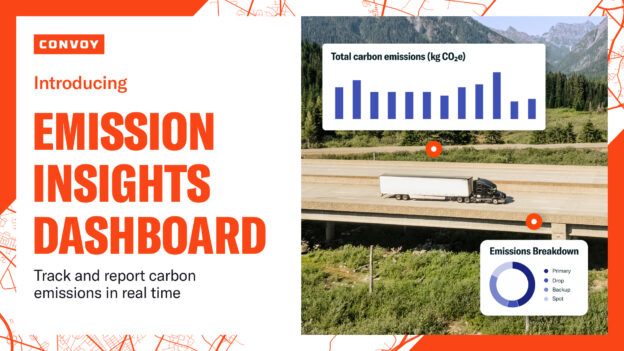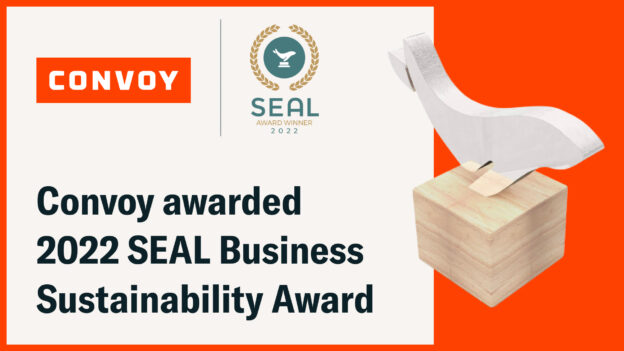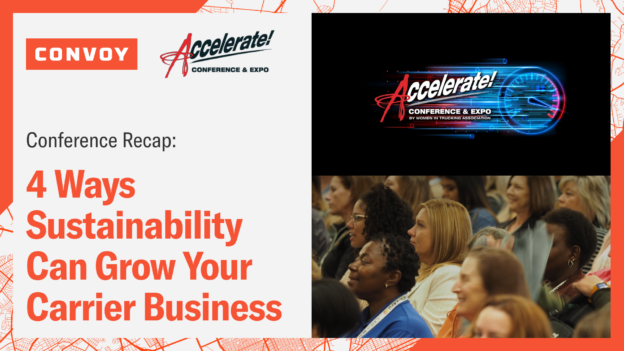How You Can Tell Sustainability Is The Way Forward
Sustainability • Published on May 10, 2021
The conversations surrounding sustainability are increasingly growing more frequent and audible. With each passing year, companies, employees, consumers — and to some degree even shareholders and stakeholders — are amplifying their commitment to doing the right thing. It’s showing up in new types of business structures (B-Corps), the addition of sustainability positions within organizations, increased governmental regulations, NGOs and non-profit organizations dedicated to organize industries and regions toward climate pledges, and even at the checkout line where consumers are willing to pay more for sustainably produced products.
So how can we tell sustainability is indeed the way forward? Throughout our Business of Sustainability interview series many guests talked about the positive effects sustainability is having on businesses, industries, and our culture as a whole. They had some fascinating insights to demonstrate sustainability is indeed here to stay. Here is a summary of their valuable opinions.
1. Consumer Demand For Sustainable Products Is Increasing. Julie Mishner, Product Manager at Jabil Packaging Solutions, states, “If we’re not providing a sustainable improvement to an existing product that is already out there that solves a problem, our customers aren’t even interested.”
2. Sustainability Is A Reputational Driver. Kimberley Sundy, Director, Corporate Sustainability at Kellogg Company admits, “We really try to make sure our portfolio resonates with consumers the entire world over. We know that sustainability is a reputational driver. Our portfolio at Kellogg is 86% plant based, and when you think about the value of sustainability, it plays a really critical and important role and it really does touch consumers at every level. Shoppers are demanding transparency and accountability. They want to know where their foods come from. And they know eating plant-based foods is better for the planet so they’re looking for plant-based options and we’ve got those.”
3. Our Society Really Wants To Do Good Together. Alan Turanski, President and Beekeeper of GloryBee points out that “We’ve got clients we’ve been supplying for 45 years, 40 years, 30 years, and you know, 5, 10, 20 and all that as well. But the conversation has been evolving beyond an exchange of goods and services to something that we’re doing together. How can we do good together? That’s really where the value is because when we do things together, we do things better.”
4. When Celebrities Challenge Businesses To Do Better And Start A Movement. Rob Johnson, VP of Sustainability and Transportation for Seattle Kraken and Climate Pledge Arena notes, “The idea that an artist like Billie Eilish could just come into a building and say, ‘I’m going to play in your building, but one of the prerequisites, one of the riders is that you can’t have any single-use plastics while I’m in the building.’ That was inspirational to us and we thought, if she can ban it for one night, why couldn’t we ban it for 365 days a year? We’re not going to be able to ban everything on day one but we’re going to ban most things and then we are going to phase out everything, we hope by the 2024 timeline. The idea is to inspire fans to really reduce their plastic use and consumption.”
5. When The Largest Retailer In The World Puts A Primary Focus On Sustainability. Zach Freeze, Senior Director, Strategic Initiatives, Sustainability at Walmart shares, “Walmart is doing a lot of great work to improve the manufacturing and sourcing of our products. Even things like recyclability of packaging — we are working very hard to improve that. Walmart is challenging and working with our supplier partners on improving the ingredients, the way things are made and sourced, and even the store itself — investing in installing extremely energy efficient lighting. We are constantly looking at how we can improve our business keeping our customer in mind. We want them to trust, when they walk in that store, or they go online, or they select Walmart as a retailer, that they’re getting a product and a service that keeps sustainability at the forefront.”
6. When Financial Institutions Focus On Investing In And Supporting Sustainability Oriented Companies. Kelly Fisher, SVP/Head of Corporate Sustainability at HSBC adds, “For HSBC, sustainable finance is finding innovative ways to ensure our clients are supported as they transition their businesses to have less of an impact on the world. A lot of things can’t happen unless there is financing for it. For example, if you’re a major shoe company and you know you can change the way you manufacture one of your shoes and make it from recycled materials, that’s great. The impulse to want to do that is the right thing, but if you don’t have the funding in the company right now to do that, a loan from a bank who believes it needs to happen, can make it happen.”
7. When Sustainability Is Successfully Integrated Into A Customer Experience. Jeff Smith, Vice President of Sustainability at Six Senses notes, “Sustainability is part of our positioning in the marketplace. We absolutely believe it helps draw people to our destinations. We are also able to add more value to our guests through the experiences they have because of sustainability. We have experiences where we’ll put guests on a boat with a local fisherman and send them off to have a fantastic, very bespoke fishing experience with the local community. We love to take on projects for wildlife conservation or habitat protection and guests can cross that boundary. They can meet with the conservation biologist and hear about the research they’re funding as a guest at the resort. They can go on that truck in the jungle and see some endangered species and learn about those species from the scientists doing that work and we wouldn’t have access to that kind of programming if we were not doing what we do for sustainability. We absolutely feel it adds value to the way we can conduct our businesses and what we offer our guests.”
8. When Sustainability Positively Impacts An Organization At A Variety Of Levels. Gretchen Grani, Regeneration & Sustainability Lead at Guayaki Yerba Mate co reports “There is a lot of evidence that sustainable brands have a premium market value. This is being driven by consumers who want to make an impact with their purchases and look for mission-driven companies. Sustainability value also extends beyond consumers to all the stakeholders. Social impact investors look to make an impact through their investments. Employees want to work with a company they believe in. Producers are receiving fair-trade, enhanced value in their land. The value of sustainability to the world is leveling the playing field. Shareholder profit is no longer the only benchmark. It’s about enhancing social justice and equity, soil health and biodiversity, carbon and water benefits, and worker health. It is really investing in the resilience of those very things we rely on to operate and viewing company assets as more than what you would find on a financial balance sheet.”
9. When Adopting Sustainable Practices Is Actually More Cost Effective. Yalmaz Siddiqui, Vice President of Corporate Sustainability at MGM Resorts International believes “Some sustainable initiatives can actually provide significantly beneficial economic value. We’re installing a 100 megawatt solar array. Someone hears that and they’re going to be worried about the massive increase in cost of energy. Actually, we are saving $27.7 million in net present value savings because we’ve chosen to go to renewable energy. This is just one example of where there are direct savings. Companies need to be open to the range of ideas. They can just be open and once you open the door, you find value.”
10. When Stakeholders At All Levels Demand It: Mary Tullis Engvall, Senior Director of Corporate Responsibility at Cigna declares, “What is moving the needle on this are stakeholders speaking up loud and clear. The work that Black Rock has done this past year by really changing it from a philosophical approach to how they look at companies in a very formal assessment approach and using ESG as a proxy for good management. What the investor community is doing right now is making all of this very real for companies. And certainly employees, customers, clients, and the whole concept of supply chain sustainability where our clients are asking us everyday in every freight RFP about these issues, because they want to do business with companies that are like-minded. I really feel that the employees are going to be driving this, especially post-pandemic. What’s happened this year in our world and the health crisis we are facing and the social justice issues we all need to be addressing, employees have really understood their role and found their voice and want to be part of really positive change and I think they will drive it from the inside.”
11. Three Macro-Trends Currently Driving More Investment In Sustainability. Amy Blyth, Director, Program Development and Partnerships at Fair Trade USA observes three key trends driving a sharper focus on sustainability: “1) consumer awareness and interest in sustainability primarily among Millennials and Generation Z; 2) investors who are showing a growing interest in investing in companies which recognize the value sustainability brings to a brand; and 3) governments which are slowly starting to implement regulations to move the needle on some of the larger systemic industry issues that need to be solved — issues which no one company can do on its own.”
12. Recognizing That Consumers Are More Awakened Toward Sustainability And They Aren’t Going To Go Back. Danielle Jezienicki, Director of Sustainability, at Grove Collaborative, points out, “Consumers are the biggest part of the equation. People are asking for it and demonstrating through purchasing that sustainable products are where their interests are and that they’re not going to go backwards. Consumers are voting with their dollars and using their voice.”
13. People are willing to pay a higher price to purchase more sustainable products. Ryan Emmons, Co-Founder & CEO at Waiākea admits, “The rPET and the upcycle packaging was probably our first big initiative and the justification was that we could really command a premium because we saw a lot of demographic trends showing people were willing to pay a 51% premium for products that weren’t just shameless greenwashing.”
14. Consumers Care Now More Than Ever About Where Their Food Comes From. Marty McKinzie, Vice President of Industry Relations at Dairy MAX believes “A big big piece of our sustainability efforts is increasing the level of trust that the consumer has in where their food comes from, and particularly from dairy products. This is increasingly becoming a focus for the dairy industry — trust at the consumer level.”



